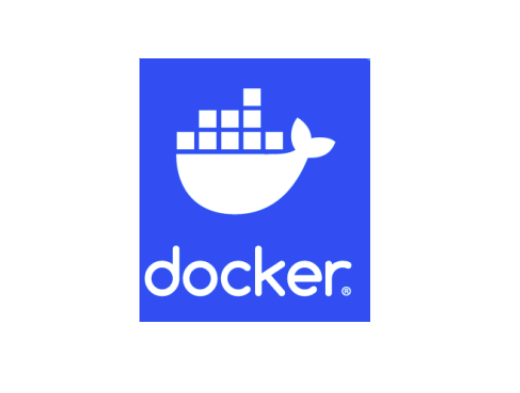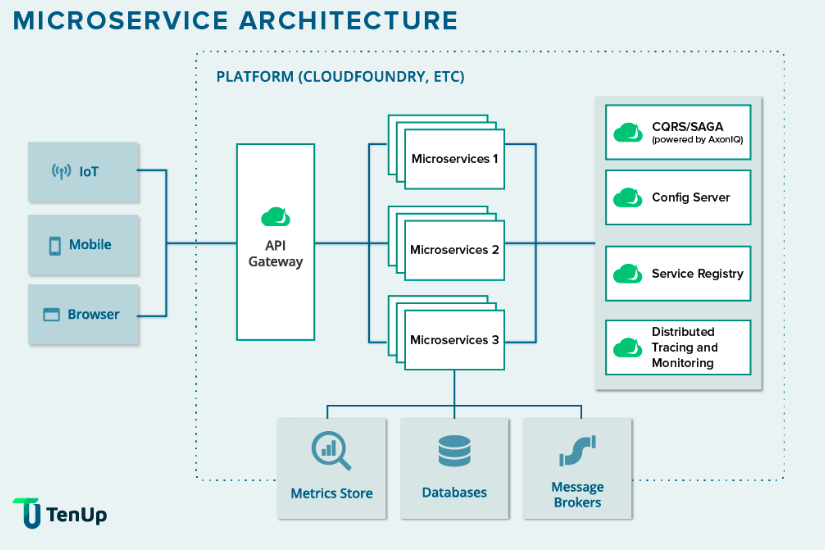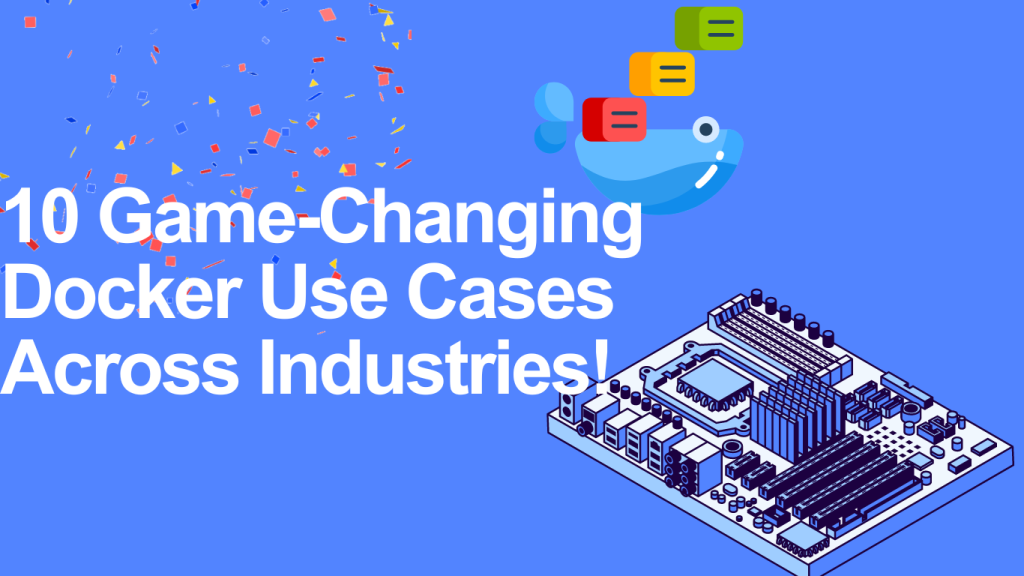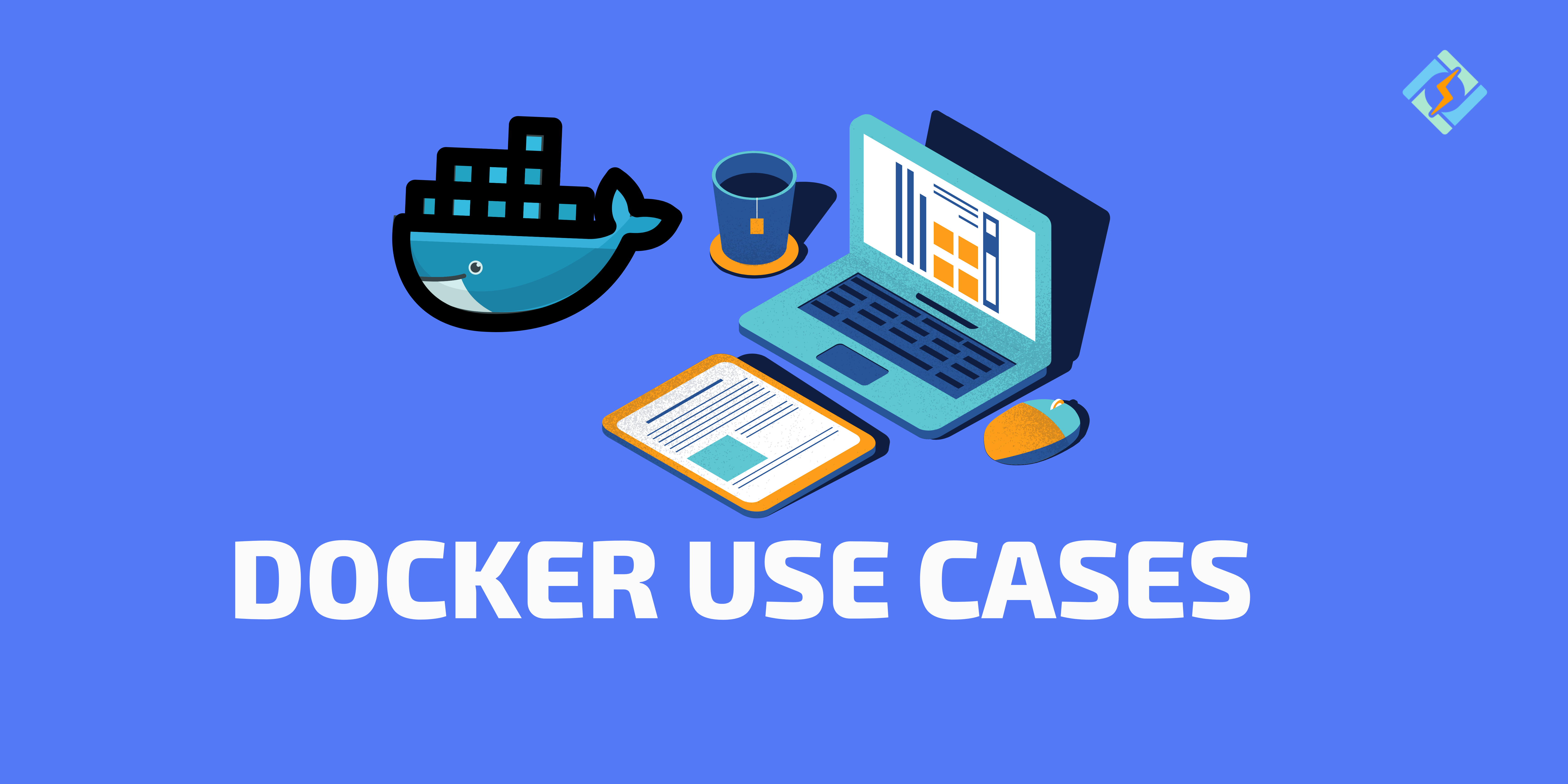In essence, IoC with Docker lets you leverage software best practices like automation, CI/CD processes, reusability, and versioning by defining how resources are provisioned for the infrastructure using configuration files and turning the infrastructure into software.
The above features work together to strengthen the application’s resilience and speed its development. After all, what’s needed these days is a strong and flexible base for continuing innovation.
Because Docker-compose allows developers to create composite apps using various services and guarantee consistency throughout the pipeline, it introduces IaC into the development phase of the CI/CD pipeline.
Why is Docker revolutionizing industries? Docker has become a favorite containerization tool for businesses all over the world, helping to improve cloud-native apps and streamline complex development workflows. Consider Netflix as an example. Using Docker, they can deploy thousands of containers every day to guarantee millions of consumers have uninterrupted viewing. This is just one of the many Docker use cases that are changing various industries.
In this article, we’ll talk about 12 very important Docker use cases across various industries like telecommunications, microservice architecture, e-commerce, and, healthcare that have started leveraging Docker for better scalability, security, or efficiency for both small and large-scale businesses.
But before exploring them we must take an overview of what is Docker, Containerization, and Microservices, for a clear understanding of our further discussion on Docker use cases.
Get exclusive access to all things tech-savvy, and be the first to receive
the latest updates directly in your inbox.
What is Docker?

An open-source platform Developers use to automate the deployment of packages, they can package a service, combined with its dependencies, libraries, and operating system, inside a container using Docker, a containerization technique. Say if you are a web application developer. You might run into problems when deploying your application across various machines if Docker is not installed. You must keep up with the latest developments in web application architecture best practices and trends to guarantee optimal efficiency.
Docker is a flexible tool that may be used in many different contexts. It offers strong solutions for contemporary software development and deployment, spanning from web development to data science, DevOps, and cloud computing.
What is Containerization: Quick Overview!
The act of packing a program and all of its dependencies into a single unit known as a container is known as containerization. No matter what the underlying infrastructure is, these containers make sure the application operates consistently in a variety of environments, from production to development.
What Are Microservices?
In simple terms to help you understand the basic concept, we say that Microservices is a way how you design a software system where you break a large complex application into a smaller system or service. We’ll need to go into its detail as well, as it’s a very important one of the Docker use cases we’ll discuss today.

In more technical terms, Software made of discrete, independent services that connect via well-defined APIs is called a microservice, which is an architectural and organizational approach to software development. The owners of these services are compact, independent teams. Every application process is handled as a service when using a microservices architecture, which builds applications as separate components.
These services use lightweight APIs to interact through a well-defined interface. Each service, designed for commercial skills, carries out a particular task. Each service can be updated, launched, and expanded to match demand for specific functions of an application because they are each run independently.
10 Industry-Specific Docker Use Cases in 2024

Nothing is stopping Docker these days, We bring you 10 Important industry Docker use cases, and let’s find out what the best use cases of Docker in different industries are and how it can instantly create and manage containers with ease fueling growth & improving your business scalability, Flexibility, and Security in 2024.
1. Docker Use Case: Media and Entertainment
One of the least known Docker use cases is its use in the media industry, for streaming, streamlining content management and delivery, and improving scalability.
Docker Use Case Example:
Netflix a leading entertainment platform right now decided to employ Docker and build its infrastructure to carry out deep tasks using its integrated Amazon EC2 services in response to the rise of containers. The name of this project was Titus.

One of the key use cases of Docker containers in Netflix is batch processing executing hundreds of thousands of batch jobs daily. Titus, a task scheduling or container management system at Netflix, schedules and runs these jobs using a common resource scheduler and deployment unit. This integration with higher-level workflow schedulers allows developers to run local code and scale it on the cloud.
Titus helps developers quickly create complex infrastructure by specifying precise code and dependencies. It also employs multi-tenant isolation using Docker and Linux.
2. Docker Use Case: E-Commerce Platforms Leveraging Docker
Any large-scale e-commerce business infrastructure needs uninterrupted performance and scalability. It’s been a while since e-commerce businesses have leveraged Docker to dynamically extend their systems according to demand. Like during busy shopping seasons such as the (the insanely famous BlackFriday Sales), container deployment, and scaling up/down are made simpler by their ease of use.
A single security error for e-commerce platforms has the potential to permanently damage client trust. By separating apps, Docker reduces the attack surface and fortifies the perimeter. One way to safeguard containerized applications against new threats is to use effective tactics like scanning containers for vulnerabilities and using trusted base images.
Docker Use Cases Example:
Shopify uses Docker to handle huge traffic spikes during high-volume sales events like Black Friday and to manage thousands of shops. Shopify can scale specific services, like payments or product catalogs, without experiencing any downtime by isolating distinct services within Docker containers.
Since we’re talking about e-commerce here’s a famous e-commerce platform incorporating docker is, Alibaba Cloud provides small and medium-sized businesses with affordable e-commerce options. It makes it possible for developers to handle content in a containerized environment and use Docker for immediate containerization. To drive the company vision, it can be integrated with Magento CMS.
3. Docker Use Case: Streamlining Application Development with Microservices
Docker is a major contributor to the microservices architectural movement by making it possible to create and implement updated, scalable, and segregated services. Docker’s lightweight containers are perfect for creating and managing microservices. They make fault separation, scalability, and autonomous development possible. When used by developers ensures consistency in performance between development and operations environments by enabling the packaging of software together with its dependencies.
In modern software development, monolithic design is no longer used due to its difficulty in monitoring and adapting to changes. Docker and microservices simplify continuous delivery, making it easier to apply DevOps best practices and providing more control over infrastructure changes. This approach also simplifies load-balancing configuration, resulting in improved performance and scalability.
Docker Use Cases Example: The streaming service Netflix operates powered by thousands of microservices, which are managed using Docker. Every microservice can be containerized, allowing them to scale specific system components in response to demand and guaranteeing peak performance for users everywhere.
4. Docker Use Cases: Scaling Cloud Native Applications
Another one of the key Docker use cases orchestration technologies like Docker Swarm or Kubernetes play a key role by leveraging its containerization technology and are frequently used to deploy cloud-native applications, allowing for the smooth scalability of these applications across cloud environments and the effective management of microservices.
The DevOps team may run into problems while executing programs with particular versions, libraries, dependencies, and a host of other problems.
You can run separate apps or the same program on different machines with Docker’s assistance, all without letting version differences or other issues interfere with your development process. This is made feasible by the fact that, in contrast to virtual machines, Docker runs like an isolated application while utilizing the host system’s kernel.
This makes it easier to construct programs where the infrastructure may be separated during development from the needs of the computing environment. It also significantly lessens misunderstanding and annoyance in team collaboration during DevOps.
5. Docker Use Cases: Secure Healthcare Apps & Patient Data
Docker use cases in the healthcare sector make it possible for their applications to be deployed securely and isolated. In addition to facilitating scalability, this guarantees adherence to data privacy rules.
Docker use cases example: Docker’s superior mobility and flexibility have allowed the NIH to provide imaging software services to over 40 US hospitals. Healthcare integrates AI with Docker to extract data from multiple websites and assist physicians in making informed decisions.
Hospitals can test new imaging technologies using Docker-powered containers, thanks to NIH. This allows for testing and continuous integration procedures with all hospital partners.
Another example: Using Docker, the healthcare IT company Cerner has isolated services that handle patient data while still maintaining application performance and adhering to data protection rules.
6. Docker Use Cases: FinTech (Secure Financial Transactions)
FinTech organizations are majorly using Docker now to create robust and scalable financial solutions. In a highly regulated business, they provide agility, security, and compliance. Tech-savvy banks, like Goldman Sachs and Bank of America, have been early and committed users of Docker containers. Approximately 25% of businesses currently use Docker, and another 35% intend to do so. But why?
With the help of containers, FinTech can quickly define and implement a system’s template, including its internal dependencies, libraries, configurations, and infrastructure-as-code, in a single package. This implies that you may deploy your Docker file on almost any platform.
This isolation between services is what keeps their sensitive data secure. The system as a whole can become more resilient and agile by using Docker to isolate, update, and scale specific components (such as risk analysis systems, fraud detection systems, or payment gateways).
Docker use cases Example: a containerized application running in an AWS-based testing environment will function precisely the same in a private cloud’s production environment.
Knowis, a digital banking solutions provider, moved from monolithic architectures to modern container technologies, enabling a scalable application infrastructure and utilizing Kubernetes for workload balancing, resulting in consistent IT performance in growing markets.
7. Docker Use Cases: Infrastructure as Code
One of the key Docker use cases is its ability to build reproducible infrastructure is another incentive to employ it in IaC. Teams can encapsulate the whole application stack, including its dependencies, libraries, and configurations, by describing the infrastructure as code using Dockerfiles and Docker Compose files.
IoC with Docker enables the implementation of software best practices such as automation, CI/CD processes, reusability, and versioning. This is achieved by defining how resources are provisioned for the infrastructure using configuration files and treating the infrastructure as software. Where Docker-compose allows developers to create composite apps and ensures consistency throughout the pipeline, introducing IaC into the development phase of the CI/CD pipeline.
The above features work together to strengthen the application’s resilience and speed its development. After all, what’s needed these days is a strong and flexible base for continuing innovation.
Because Docker-compose allows developers to create composite apps using various services and guarantee consistency throughout the pipeline, it introduces IaC into the development phase of the CI/CD pipeline.
Docker Use Cases Example: An organization uses Terraform to supply Docker containers for a microservices architecture in a cloud environment, where each service is executed in a separate container.
8. Docker Use Cases: Software Development & Testing
Simplifying Continuous Integration/Continuous Deployment (CI/CD) is another key benefit & Docker use cases. Docker allows the pipeline for development to be faster and deployment to tightly maintain consistency in the production of infrastructure by allowing developers to test quickly, stage, deploy code, and even resource utilization.
Docker use cases example: To expedite their CI/CD pipelines and shorten the time needed for testing and deployment, PayPal uses Docker containers. Agile approaches to development and faster releases have resulted from this.
9. Docker Use Cases: Education and Research
As surprising or unexpected as it may sound Docker has entered the education industry, and already made quite an impact! Docker wants to provide the developer community with extensive learning tools because we understand how important it is to keep developers at the forefront of innovation. An invaluable tool in education, eliminating the need for pricey hardware and saving time on configuration thanks to its mobility, efficiency, and capacity to build scaled learning environments.
Docker is frequently used in education to create portable, consistent environments for research, teaching, and hands-on labs. It offers pre-configured containers that work on different platforms, making setup easier for programming, data science, and system administration courses.
Additionally, Docker allows students to explore cloud computing and DevOps concepts and promotes reproducible research environments.
Docker use cases Example: By partnering with well-known platforms like Udemy and LinkedIn Learning, investing in Docker resources as documentation and guides, and showcasing the amazing learning materials produced by the developer community, including Docker Captains, Docker has adopted a multifaceted approach to developer education.
10. Docker Use Cases: Telecommunications
The use of Docker in the telecommunications industry enables businesses to rapidly develop and deploy new services, often in conjunction with edge computing, in response to the industry’s continuous transformation.
Telecommunications companies are constructing loosely coupled architectures by taking advantage of Docker’s support for software-defined networks and 5G technology. Network function virtualization is supported by the new 5G technology, which enables telecoms to virtualize network appliance hardware. As a result, they can separate, develop, and bundle each network function into a service and container.
Docker Use cases example: Telecom companies can save costs by using containers on inexpensive hardware, avoiding the need for pricey infrastructure. ISVs and operators’ earnings have declined due to public cloud providers entering the telecom business. Now with Docker, they can create affordable public clouds, generating new revenue streams.
Summary: Is Docker A Game Changer For Industries?
Proven as a game changer for business, Docker use cases are many! It offers several Docker use cases and benefits for various sectors of industries such as healthcare, FinTech, education, microservices, and cloud-native applications. The uses of docker mentioned above are just a few of many others.
In the field of developing and deploying applications, Docker is a helpful tool. Its benefits are causing many businesses to choose it. With its potential to completely change how applications are developed and delivered in the upcoming years, Docker has a bright future.
Large corporations such as The New York Times, PayPal, Tesla, Spotify, Netflix, Uber, and many more use Docker to overcome a variety of obstacles, which inspires other firms to use it as well.
Docker keeps changing the way we develop, launch, and scale contemporary apps, whether it’s via enabling infrastructure as code (IaC), supporting DevOps operations, or overseeing large-scale deployments.
FAQ’s
1. What Docker use cases are there?
Application scaling, DevOps automation, microservices architecture, and cloud-native app development are among the use cases for Docker.
2. Why should I use Docker for machine learning?
Machine learning (ML) uses Docker because it offers a consistent environment for ML operations, makes software dependencies simpler, promotes repeatability, and makes it simple to share and collaborate on ML experiments and models.
3. Why is education using Docker?
To facilitate students’ practice with coding, cloud computing, and DevOps, Docker is utilized in education to provide consistent, portable learning environments.
4. What is the benefit of Docker for microservices?
Individual microservices can be containerized with Docker, enabling autonomous deployment, scaling, and management for increased performance and agility.
5. In what ways does Docker help DevOps?
Docker makes CI/CD simpler by enabling quick, reliable deployments across environments.



